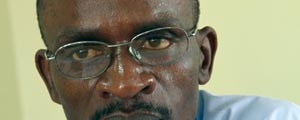
Trouble is brewing in Pentecostal and apostolic churches, with everyday bringing fresh headlines proclaiming sexual and physical abuse and financial mismanagement.
VIEWPOINT by Wisdom Mdzungairi
After the sentencing of RMG Independent End Time Message Church leader Robert Martin Gumbura to an effective 40 years in jail last week, some called for more government oversight into these apostolic or Pentecostal movements, which in some countries like Uganda and Cameroon are classified as NGOs.
A fight broke out when Apostolic Christian Council of Zimbabwe (ACCZ) leader Johannes Ndanga claimed that he had been mandated by “the highest office in the land” to investigate over 50 local churches with a view to prosecuting those whose practices would be deemed illegal.
As Ndanga spoke, Justice deputy minister Fortune Chasi indicated that government had no business in regulating churches.
This after Kuwadzana East MP Nelson Chamisa had asked him in Parliament to explain if there were plans by the government to regulate churches in light of abuse of members especially by Gumbura and other so-called pastors or prophets.
Ndanga also found himself in the eye of a storm after claiming initial findings had shown that there were more churches with doctrines similar to Gumbura’s movement.
He was, however, not worried about “competition” between United Families International Church founder Emmanuel Makandiwa and Walter Magaya of the Prophetic Healing and Deliverance Ministries.
- Chamisa under fire over US$120K donation
- Mavhunga puts DeMbare into Chibuku quarterfinals
- Pension funds bet on Cabora Bassa oilfields
- Councils defy govt fire tender directive
Keep Reading
“But if the doctrines are similar and there are no criminal activities, we don’t worry about those churches, like if Makandiwa engages in competition with Magaya, with one saying I will raise the dead and the other saying I will walk on water, it will not concern us.
“We can’t challenge them on such useless doctrines,” Ndanga quipped.
Avid followers of these churches sprang into action to defend their leaders and queried whether Ndanga was called by God or the President’s Office.
They queried who Ndanga was representing — the Christians or the heathen?
They also asked who would inspect Ndanga’s church since it is also apostolic.
Assuming that Ndanga was really mandated to look into the matter, it is important to interrogate the issue.
This also raises several constitutional questions.
Can the player be the referee or both at the same time?
Given the freedom of worship, association and expression as espoused in the Constitution, would this not be viewed as interference?
Could it be that certain prophets are merely using their churches as a cover for illegal activities?
In the wake of scandals ranging from sodomy to rape; to the use of electric gadgets and fraud among some church leaders, should government regulate their activities?
It is ironic that a group that has separation of Church and State in its name would argue and agitate for government-controlled churches.
Ndanga wants pervasive and ongoing monitoring and surveillance of churches by his organisation and government.
That’s not separation of Church and State no matter how one looks at it.
What is in it for ACCZ?
Is Ndanga wrong in accepting the “responsibility” thrust on him by the powers-that-be?
I am sure Ndanga should be even more worried about the new development for, as some argued, worse things are happening in his own church.
But, if Catholic bishops can criticise government, why can’t government critique the Church?
Isn’t the Church should confront the reality and find a solution instead of burying its head in the sand, pretending that the abuses are too small to affect the country?
I am sure the State will not fail to say something about these issues in the same way the Catholic Church should re-examine celibacy for its priests.
Yes, many otherwise “good” priests have failed in their vows of celibacy, and that debate is as old as the date the Church decided on celibacy.
Hence, government should also not merely watch when some priests who have failed to be celibate cause harm to third parties, especially children.
We must understand the gravity of harm caused to children who are born to priests who will never acknowledge them as their children.
Children sired by priests are not acknowledged and therefore grow up with doubtful parentage.
If such a child is asked to name its clan and ancestry, what does the child say?
The sense of belonging steeped in our extended family escapes such a child.
So who is scandalising who? Is it the government?
Ndanga could be seeking relevance, but these churches should also not stifle debate from persons who genuinely want to see clarity here.
They should know that by their uncouth behaviour, their leaders have invited government into their untoward activities.
In fact, last August, Cameroon cracked down on Pentecostal movements to put an end to what it considered to be anarchy among some churches.
Communications minister Issa Tchiroma Bakary said the churches engaged in “unhealthy” and “indecent” practices contrary to the goal of spiritual growth of the people.
Bakary also denounced obvious cases of extortion of people in desperate situations, repeat nocturnal uproars, and proselytising.
“In such a situation . . . the government could not remain indifferent and inactive,” he said.
“The administrative authorities which are responsible for the preservation of public order had to take responsibility.”
In total, 35 churches were closed across the country, according to Bakary.
Cameroon, like Zimbabwe, is a secular country.











